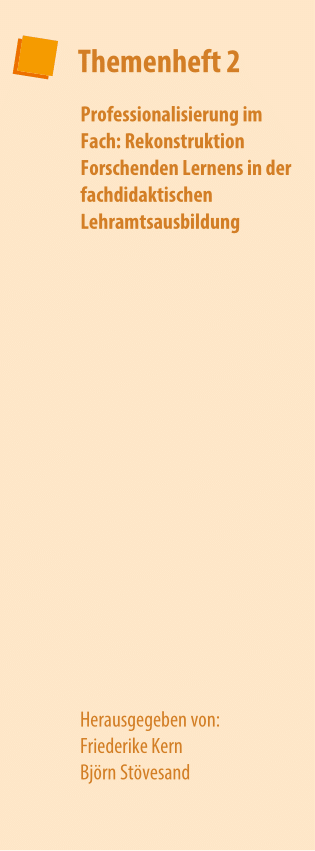Developing Professionalism in the Didactics of Social Science
DOI:
https://doi.org/10.4119/hlz-2445Keywords:
social science education, professionalism in the didactics of social science educationa, types of knowledge, phases of school practice, matrix of peer reflexion, research oriented learningAbstract
On the basis of the present discussion of professionalism in teach-ing, this article asks for the specific characteristics of professionalism in the di-dactics of social science education and maps out possibilities for supporting their formation and development. Professionalism in the didactics of social science ed-ucation is herewith described as a reflective potential towards differentiation, es-timation, and action. On the one hand, this professionalism refers to the multiple subjects within the discipline (sociology, economy, political science); on the oth-er hand, it needs to take into account the social context and everyday life experi-ences of the learning party. As professionalism in teaching in general, profession-alism in the didactics of social science education distinguishes three aspects of knowledge: scientific knowledge, operating knowledge and professional knowl-edge. The article argues for a strong interrelationship between progressing pro-fessionalism and research-oriented learning. The article suggests and offers pos-sibilities for working with a matrix of peer reflection on in order to support re-search-based learning in the didactics of social science. The proposed matrix presents a guideline for students to facilitate talk about, and reflect upon, their observations, sensations, assessments, irritations, alternatives of action, limits, (missing) knowledge, questions towards applying theories, and more. In addition, the suggested peer reflection matrix helps students, young professionals and teachers in both school and university to improve self-assurance in the field of social science education and professionalism at the same time. Even though the focus of this article is on professionalism in social science education, it may offer valuable insights for didactics in other subjects.
Downloads
Published
How to Cite
Issue
Section
License
Copyright (c) 2019 Volker Schwier

This work is licensed under a Creative Commons Attribution-ShareAlike 4.0 International License.
Sämtliche Inhalte der HLZ werden freigegeben unter der Creative-Commons-Lizenz Namensnennung, Weitergabe unter gleichen Bedingungen, Version 4.0 International (CC BY-SA 4.0). Die Urheber_innen und die Rechteinhaber_innen der in der HLZ veröffentlichten Beiträge gewähren grundsätzlich allen Nutzer_innen unwiderruflich das freie, weltweite Zugangsrecht zu diesen Veröffentlichungen. Unter der Bedingung, dass Autor_innen und Herausgeber_innen gemäß der Zitationshinweise sowie die Lizenz als »Lizenz: CC BY-SA 4.0« einschließlich der untenstehenden Lizenz-URL genannt werden, dürfen die Beiträge der HLZ vervielfältigt, weitergereicht und auf beliebige Weise genutzt werden, auch kommerziell und ebenso online wie in gedruckter oder anderer Form. Auch die Bearbeitung ist erlaubt unter der zusätzlichen Bedingung, dass das neu entstandene Werk als Bearbeitung gekennzeichnet wird und im Falle einer Veröffentlichung unter derselben Lizenz wie in der HLZ freigegeben wird.





